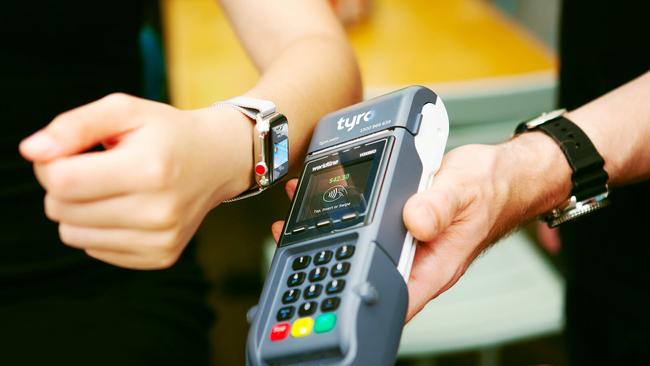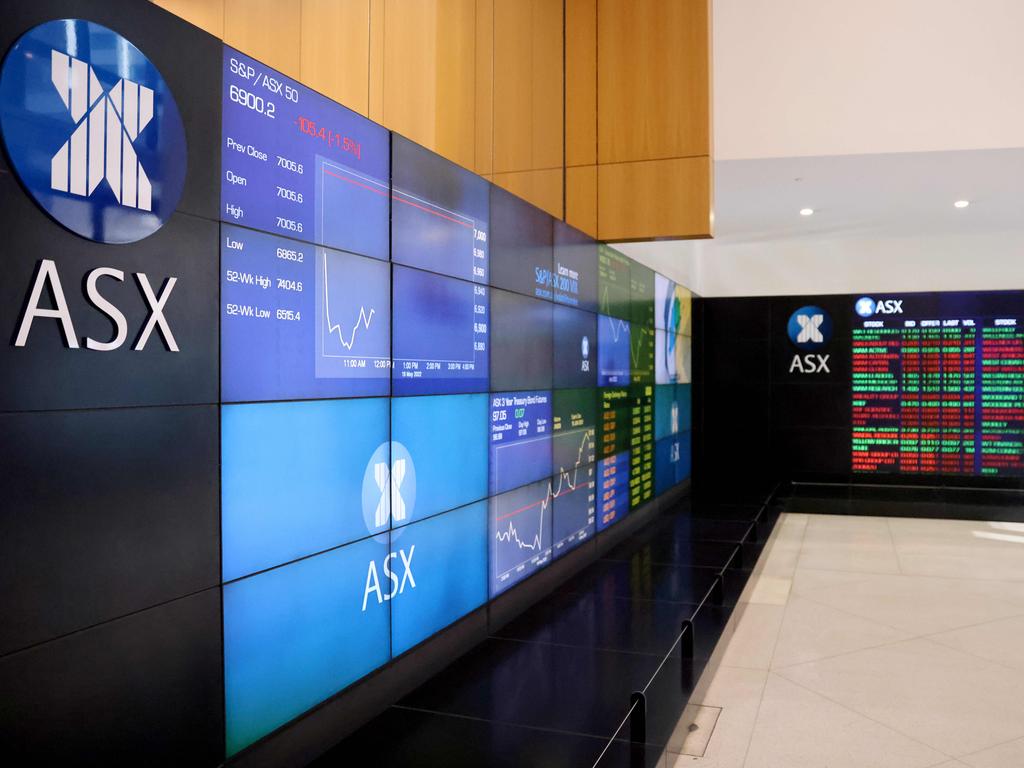Tyro in sale talks after rejectingPotentia Capital and HarbourVest’s $658m bid
The payments business is in sale talks with Westpac and ‘selected parties’ after rejecting an unsolicited $658m takeover bid from Potentia Capital and HarbourVest.
Westpac has emerged as one of the country’s major banks interested in Tyro Payments, disclosing “preliminary discussions” to purchase the EFTPOS terminal provider.
In a statement, the bank said a deal would “strengthen Westpac’s small business proposition, enabling it to better support customers and grow merchant acquiring, particularly in the hospitality and healthcare sectors”.
Tyro shares closed Tuesday 1.9 per cent, or 3c, higher at $1.59. The embattled payments company has seen its share price slide more than 45.5 per cent since December 31.
Interest in Tyro has increased since it rejected an unsolicited $bid from private equity firms Potentia Capital and HarbourVest valuing it at $658m last month.
On Tuesday, Tyro confirmed it had “received approaches from several parties expressing interest in a potential change of control transaction, including Westpac”.
“None of these approaches are sufficiently definite or advanced to warrant further disclosure at this time. Tyro is engaging in preliminary discussions with selected parties in the context of maximising value for all shareholders.”
On October 4, The Australian’s DataRoom column first reported at least one major bank was interested in Tyro. National Australia Bank is another interested party, recently tapping Bank of America to assist it in the process.

Tyro is being advised by bankers at Barrenjoey, while Westpac has engaged JPMorgan.
However, any transaction may raise concerns from the competition regulator, and from some of Tyro’s largest clients. Bendigo and Adelaide Bank has a major deal with Tyro, and it is unclear whether Westpac or NAB would allow it to continue. Bendigo declined to comment on Tuesday.
Tyro has around 100,000 eftpos terminals in the market – with a market share of some 11 per cent – while Westpac has close to 190,000 terminals and a 20 per cent market share. The Commonwealth Bank is the largest operator of terminals, with some 240,000 – and a market share of 26 per cent.
New Tyro chief executive Jon Davey last week said the company would embark on a new cost-reduction program to save $11m annually by reducing headcount and cutting spending.
As a result of the savings, Tyro lifted its guidance for the current year, with operating leverage now expected to a midpoint of 82 per cent, down from 85 per cent, and EBITDA before share-based payments of between $28m and $34m – up from $23m to $29m.
In the same update, Tyro said its merchants recorded $10.37bn in transaction value for the three months through September 30, a 59 per cent jump on the prior corresponding period, while merchant loan originations rose 116 per cent to $32.7m.
The David Thodey-led Tyro board rejected the Potentia bid – at $1.27 per share – with some analysts believing there could be an offer of between $2 and $2.50 per share. As part of its bid, Potentia locked in Atlassian co-founder Mike Cannon-Brookes, who owns a 12.5 per cent stake through his private Grok Ventures vehicle.
Mr Cannon-Brookes agreed to sell only if there was no offer above $1.52 per Tyro share.
The Potentia bid was, as JP Morgan analyst Bob Chen wrote to clients at the time, “highly opportunistic” but left “room for further bids to come”.
“Loan originations have been hampered by the onset of Covid-19; however we expect this will likely recover as lockdowns are eased and Tyro’s merchants resume their operations,” Chen wrote. “We see opportunity for Tyro to offer these products to its growing number of merchant.
“The SME lending market is vast and grossly underserved; we believe Tyro’s innovative product, combined with deep transaction data, will assist (it) in penetrating this market.”
“We thought the chance of a takeover offer from private equity was possible but modest, noting the recent resignation of CEO Robbie Cooke likely did increase the odds,” wrote UBS analyst Tim Piper in a note last month. An offer should be 25c per share higher, he added, “however we are of the view that (Tyro) may be appealing to a strategic buyer”.
Tyro had traded as high as $4.38 before the Covid-19 pandemic, before subsiding to as low as 61c in July. It listed in 2019 at an offer price of $2.75 per share.
Tyro also faces a renewed class action campaign from Bannister Law, which in September wrote to its customers urging them to join the lawsuit. Bannister is acting on behalf of Spozac Pty Limited over an eftpos outage in January 2021.
That outage left thousands of businesses unable to take credit card payments.







To join the conversation, please log in. Don't have an account? Register
Join the conversation, you are commenting as Logout